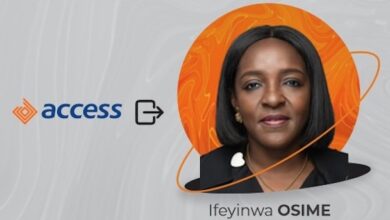Mahama urges African leaders to strengthen multilateral financial institutions
“Structural transformation remains uneven, with many economies still reliant on low-productivity sectors."

President John Mahama of Ghana has urged African leaders to strengthen multilateral financial institutions to drive sustainable development on the continent.
Mahama who made the call on the sidelines of the 38th AU (AU) Summit on Sunday in Addis Ababa, urged the leaders to accelerate the establishment of key AU financial institutions, such as the African Central Bank, African Investment Bank, African Monetary Fund, and Pan-African Stock Exchange.
He also emphasised the need for African leaders to prioritise investment and financing of the African dream to realise Agenda 2063.
CEPREC unveils £3.5m centre to address Africa’s energy, e-waste issues
According to him, Africa’s economic journey has demonstrated resilience amidst numerous challenges, saying in 2023, the continent experienced a slowdown with real GDP growth decline to 3.1 per cent from 4.1 per cent in 2022.
Mahama said, “the projections suggest a recovery with growth expected to increase to 3.7 per cent in 2024 and 4.3 per cent in 2025.
“This optimistic outlook highlights the inherent strength of our economies and the effectiveness of our policy interventions.
“In spite of these positive trends, we must confront the reality that our growth has not always translated into significant improvements in per capita income.
“Structural transformation remains uneven, with many economies still reliant on low-productivity sectors.
“Additionally, the continent continues to face challenges such as climate issues, geopolitical tensions, widening gaps in multilateralism, diseases, and pandemics that disrupt the positive growth path.”
He stated that to achieve sustainable development, there is the need to envision strategic investments in health, education, energy, technology, and infrastructure.
He expressed regret that financing gap for such investments is substantial and estimated at approximately 402 billion dollars annually until 2030 to actualise the targets of Agenda 2063 and meet the 2030 Sustainable Development Goals (SDGs) objectives and grow multilateral financial institutions.
“This financing gap is not merely a statistic, it represents the unrealised potential of millions of Africans, whose dreams for better life depend on our ability to invest wisely in infrastructure, education, technology, and health.
“Our challenge, therefore, is to mobilise domestic and African resources effectively, reducing our dependency on traditional external financing and charting a path toward self-reliance and sustainable growth.
“To address the financing gap, we must take a multifaceted approach.
“Domestic resource mobilisation is also crucial, by improving tax-administration, combating illicit-financial flows, and encouraging a culture of tax-compliance.
“This way, we can significantly increase our revenues.
“We applaud the AU Commission for its proactive role in providing capacity building to member states at the continental level and advocating fair and equitable international tax rules at global forums.
“The ongoing work on the United Nations Framework Convention on International Tax Cooperation is a critical step toward eliminating base erosion and profit shifting, thus protecting our national revenues,” he stated.
He said that domestic efforts alone would not suffice as it is projected that African countries need to increase their median tax-to-GDP ratio by about 13.2 percentage points, to 27.2 per cent of GDP to close the financing gap by 2030.
Mahama reiterated the need for additional innovative financial resources and reform of the global financial architecture to ensure equitable and inclusive distribution of resources.
“The journey ahead requires unwavering commitment.
“I call upon our governments, private sector, civil society, and development partners to renew their commitments to mobilising resources for our continental development agenda.
“Let us leverage our collective strengths, foster strategic partnerships, and champion innovative solutions to bridge financing and investment gaps we face.
“The Africa we aspire to build is a continent that is integrated, prosperous, and peaceful and it is within our reach.
“By mobilising our resources, reforming our financial systems, and investing in our people, we can turn the aspirations of Agenda 2063 into reality.












